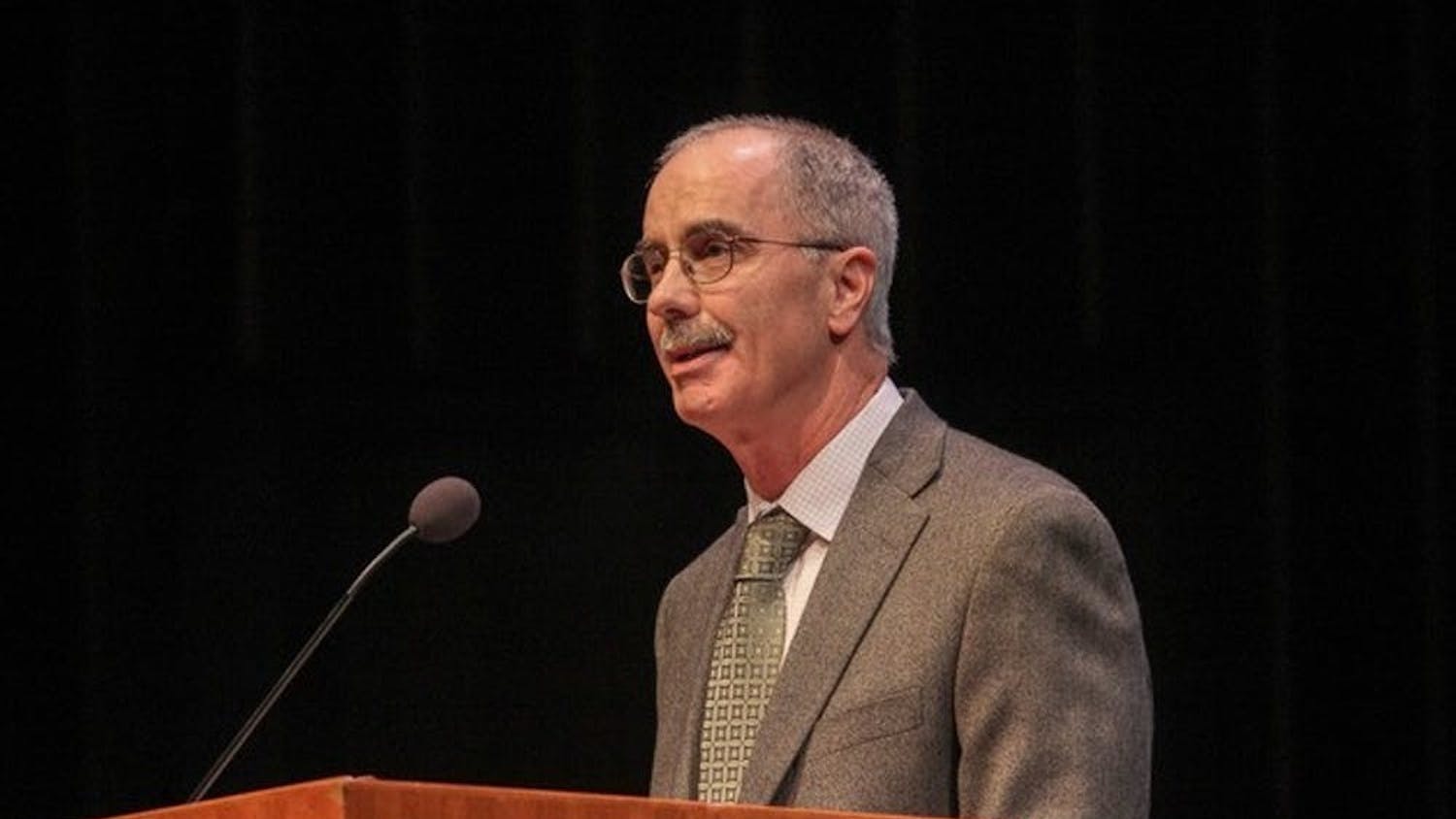While Dartmouth students may only have four years on campus, they make connections that last well beyond their time at the College. Those connections can be particularly strong for student-athletes. Through shared experiences, Big Green student-athletes and alumni maintain a large web of personal and professional relationships.
As associate athletics director of varsity sports and Dartmouth Peak Performance Jennifer Chuks noted, the Dartmouth athletic alumni network is particularly active and supportive.
“The alumni are just so engaged and so passionate about helping Dartmouth students in general,” Chuks said. “They're the best bunch — super active and constantly reaching out about job opportunities that they have, either full-time opportunities or just internships. They really, really want to see Dartmouth students — and specifically Dartmouth student-athletes from their programs — applying.”
Chip Fleischer ’86, who ran cross country as an undergraduate, was “happy to say yes” when current cross country runner Ella Ketchum ’21 reached out for career advice. According to Chuks, this connection led to Ketchum getting an internship at Fleischer’s company, Steerforth Press.
Fleischer added that while he does not only offer advice to student-athletes, athletic teams provide communities that can lead to opportunities.
“I don’t have a particular bias towards helping student-athletes, but rather towards making myself available to people who are looking for opportunities, and the fact that I ran cross country and was part of that community was one way to do that,” Fleischer said.
Men’s basketball co-captain James Foye ’20 has kept in touch with various teammates from prior seasons, and his time at Dartmouth has led to many alumni connections.
“One thing that I've enjoyed is that you're only at Dartmouth for four years, but I feel like I've made seven or eight years of connections,” Foye said.
Foye said he has experienced the depth of the Big Green athletic alumni network, and he hopes to further its presence for future players.
“I hope that one day I can do that for the younger guys too,” Foye said. “That it becomes a trend where you're paying it forward and not only continuing the friendship, but continuing to help the younger guys on the team and the Dartmouth community excel as they springboard out of Dartmouth.”
For athletes like Foye, the journey towards life beyond Hanover’s bucolic campus begins with experiences during their junior and seniors years. According to Chuks, the Career Connections program, a department within Dartmouth Peak Performance, functions as a gateway for student-athletes entering the workforce. The department provides career counseling and functions as a conduit between student-athletes and alumni within the fields they wish to enter. She added that students also utilize the Athlete Career Network — a database that holds the names of approximately 1,700 former student-athletes willing to offer assistance to current students.
“Alumni are constantly reaching out to me and saying, ‘Hey, we have this wonderful internship at my job or are looking for a full-time employee at my job, can you send this out to the athletes?’” Chuks said. “On a weekly basis, I'm sending out emails to the athletes about job opportunities.”
Jim Beattie ’76, who played both basketball and baseball as an undergraduate, noted that the alumni network was more “informal” when he was a student. But, he said, his Dartmouth peers did continue to support him after he left campus. Beattie continued his athletic career after college, going on to play Major League Baseball as a pitcher for the New York Yankees and later the Seattle Mariners. As Beattie played on fields across the country, Dartmouth pride followed.
“Every time I went anywhere playing in a game or was out on the field, people from Dartmouth would yell and cheer. And I could tell, you know, they might have a Dartmouth banner or something up there. So they always made their presence known,” Beattie said.
Beattie said he uses his connections in professional athletics to help students interested in pursuing athletics after college. “I usually talk to at least five or six [students] a year and put them in touch with other folks that I know if they're interested in baseball or football or basketball,” Beattie said.
Beattie added that he encourages all Dartmouth students to utilize the alumni network, noting that it is “a great setup.” He advised students to be persistent when contacting alumni and forming connections, and emphasized that connections are vital in pursuing a professional athletic career.
“That's the biggest thing, at least in professional sports, is getting your foot in the door,” Beattie said.
A supportive alumni network is bred from a strong sense of community. Women’s soccer head coach Ron Rainey attributed Dartmouth’s strong alumni network to its tight-knit community.
“I've coached for 30 years — Dartmouth is by far the best school as far as how it gets ingrained in the people’s souls,” Rainey said. “So I think in that way it becomes easy for people to want to stay involved, whether it’s through mentorship or whether it's coming back on campus.”
Though an athlete may physically leave campus after graduation, they never truly depart from the wider Dartmouth community. Coaches often emphasize this attribute of Dartmouth to foster a powerful sense of history and purpose in their teams. According to Rainey, alumni are often brought in to meet with current team members to discuss their playing days and give encouragement.
“When you get out in the workforce, so many doors open up, and you're probably one degree of separation from somebody who has been really, really successful or really, really happy because of their time here at Dartmouth,” Rainey said.



